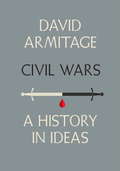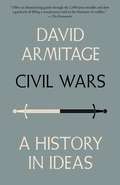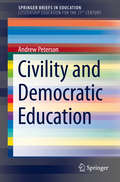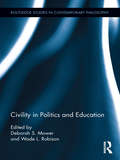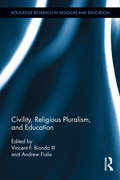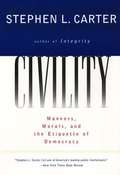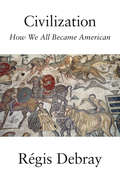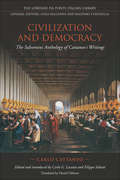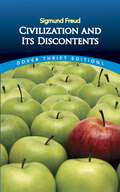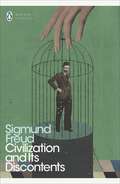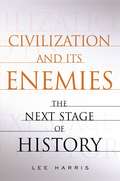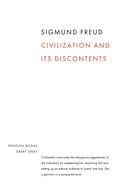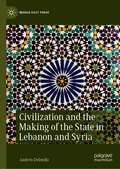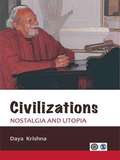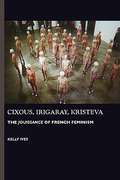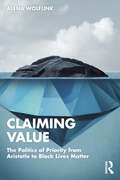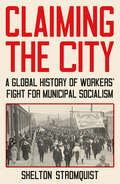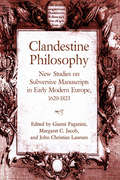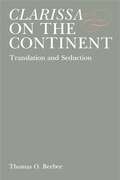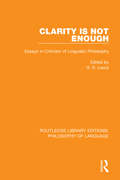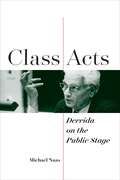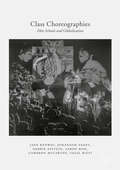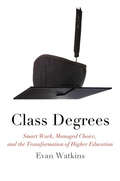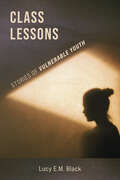- Table View
- List View
Civil Wars: A History in Ideas
by David ArmitageA highly original history, tracing the least understood and most intractable form of organized human aggression from Ancient Rome through the centuries to the present day. We think we know civil war when we see it. Yet ideas of what it is, and what it isn't, have a long and contested history, from its fraught origins in republican Rome to debates in early modern Europe to our present day. Defining the term is acutely political, for ideas about what makes a war "civil" often depend on whether one is a ruler or a rebel, victor or vanquished, sufferer or outsider. Calling a conflict a civil war can shape its outcome by determining whether outside powers choose to get involved or stand aside: from the American Revolution to the war in Iraq, pivotal decisions have depended on such shifts of perspective. The age of civil war in the West may be over, but elsewhere in the last two decades it has exploded--from the Balkans to Rwanda, Burundi, Somalia, and Sri Lanka, and most recently Syria. And the language of civil war has burgeoned as democratic politics has become more violently fought. This book's unique perspective on the roots and dynamics of civil war, and on its shaping force in our conflict-ridden world, will be essential to the ongoing effort to grapple with this seemingly interminable problem.
Civil Wars: A History in Ideas
by David ArmitageA highly original history, tracing the least understood and most intractable form of organized human aggression from Ancient Rome through the centuries to the present day. We think we know civil war when we see it. Yet ideas of what it is, and what it isn't, have a long and contested history, from its fraught origins in republican Rome to debates in early modern Europe to our present day. Defining the term is acutely political, for ideas about what makes a war "civil" often depend on whether one is a ruler or a rebel, victor or vanquished, sufferer or outsider. Calling a conflict a civil war can shape its outcome by determining whether outside powers choose to get involved or stand aside: from the American Revolution to the war in Iraq, pivotal decisions have depended on such shifts of perspective. The age of civil war in the West may be over, but elsewhere in the last two decades it has exploded--from the Balkans to Rwanda, Burundi, Somalia, and Sri Lanka, and most recently Syria. And the language of civil war has burgeoned as democratic politics has become more violently fought. This book's unique perspective on the roots and dynamics of civil war, and on its shaping force in our conflict-ridden world, will be essential to the ongoing effort to grapple with this seemingly interminable problem.
Civility and Democratic Education (SpringerBriefs in Education)
by Andrew PetersonThis book explores how and why civility contributes to a vibrant democratic society, and how it can be fostered and cultivated as a key part of democratic education. It suggests that civility only makes sense as a civic virtue if it is conceived in relation to civic friendship, concord and fellow-feeling. This book offers a timely snapshot of civility as a pressing, yet enduring, concern in democratic life and education. It elucidates a virtue-based conceptualization of civility and its place within democratic education, and makes use of real-life examples and cases to illustrate its arguments and to engage a range of readers. In short, this book is interested in what civility is and how schools can and do cultivate civility.
Civility in Politics and Education (Routledge Studies in Contemporary Philosophy)
by Wade L. Robison Deborah S. MowerThis book examines the concept of civility and the conditions of civil disagreement in politics and education. Although many assume that civility is merely polite behavior, it functions to aid rational discourse. Building on this basic assumption, the book offers multiple accounts of civility and its contribution to citizenship, deliberative democracy, and education from Eastern and Western as well as classic and modern perspectives. Given that civility is essential to all aspects of public life, it is important to address how civility may be taught. While much of the book is theoretical, contributors also apply theory to practice, offering concrete methods for teaching civility at the high school and collegiate levels.
Civility, Legality, and Justice in America
by Austin SaratThroughout American history, the discourse of civility has proven quite resilient, and concern for a perceived lack of civility has ebbed and flowed in recognizable patterns. Today we are in another era in which political leaders and commentators bemoan a crisis of incivility and warn of civility's demise. Civility, Legality, and the Limits of Justice charts the uses of civility in American legal and political discourse. How important is civility as a legal and political virtue? How does it fare when it is juxtaposed with the claim that it masks injustice? Who advocates civility and to what effect? How are battles over civility played out in legal and political arenas? This book brings the work of several distinguished scholars together to critically assess the relative claims of civility and justice and the way law weighs those virtues.
Civility, Religious Pluralism and Education (Routledge Research in Religion and Education)
by Andrew Fiala Vincent F. Biondo IIIThis book focuses on the problem of religious diversity, civil dialogue, and religion education in public schools, exploring the ways in which atheists, secularists, fundamentalists, and mainstream religionists come together in the public sphere, examining how civil discourse about religion fit swithin the ideals of the American political and pedagogical systems and how religious studies education can help to foster civility and toleration.
Civility: Manners, Morals, And The Etiquette Of Democracy
by Stephen L. CarterIn this followup toIntegrity,Yale law professor Stephen Carter continues to meditate upon the "prepolitical" qualities on which a healthy society is based.Why do people show poorer manners today than in previous ages? How did we come to confuse rudeness with self-expression and acting on our "rights"? Carter looks at these and other important questions with a combination of his personal experiences and an extremely long shelf of reading material, all the while maintaining an informal writing style that continuallybut politelyengages the reader, inviting him or her to think about these issues along with Carter.There are important messages here about generosity and trust, about respecting diversity and dissent, and about resolving conflict through dialogue rather than mandate. Stephen Carter would never be so uncivil as to demand your attention, butCivilitymost definitely compels.
Civilization
by Regis DebrayAmerican civilisation's dominance over Europe - and what to do about it'Civilization' -- a hard term to define. But while every society has a distinctive culture, authentic civilizations must offer those they subjugate an attractive way of life. Their imprint outlasts their imperium.A century ago, Debray argues, there was a European civilization of which America was an outlying culture; but today the relationship is reversed. 'In 1900, an American of taste was a European in exile; in 2000, a trendy European is a frustrated American - or one waiting for a visa'. Characteristic of American civilization is its three overarching fetishes: space, image and happiness. America is a civilization of space and image, whereas Europe was one of time and writing. And its kitsch infantilism blinds itself to the tragic complexities of human life. A measure of America's success is how its 'globish' jargon has so successfully infiltrated European languages.For Debray, the dominance of American civilization is a historical fait accompli, yet he sees a model for Europe in Vienna after its exclusion from the German Reich. For decades to come, Europe can still offer a rich cultural seedbed. 'Some will call it decadence, others liberation. Why not both?'
Civilization and Democracy
by Filippo Sabetti Carlo Cattaneo Carlo LacaitaNineteenth-century Italy is a vast, unexplored territory in the history of modern political thought and liberal democratic theory. Apart from Mazzini, Pareto, and Mosca, the authors of this period are little read, even though their central concerns - the riddle of human liberation, progress, and liberty - are as important today as ever. This volume presents a selection of the writings of Carlo Cattaneo (1801-1869), one of the period's most important thinkers, as selected by an equally important personage of a subsequent time, the anti-Fascist intellectual Gaetano Salvemini.Cattaneo had a profound sense of the historical contingencies underlying the quest both to understand human affairs and to realize a self-governing society. Cattaneo's ideas and framework of analysis - like those of John Stuart Mill and Alexis de Tocqueville - were not shaped by a narrow intra-academic agenda but by the great social, economic, and political transformations of his time. The issues he addressed included problems of revolution, reform, and change in the passage to modernity, which extended far beyond the confines of nineteenth-century Italy.The selection of original pieces presented in this translation is preceded by an introduction by the editors, Carlo G. Lacaita and Filippo Sabetti, which guides the reader through Cattaneo's thinking and puts it in a comparative context. Ultimately, however, it is the editors' goal to let this profound Italian thinker speak for himself.
Civilization and Its Discontents
by Sigmund Freud Joan RiviereThe struggle between the urgencies of instinct and the restrictions of civilization is addressed throughout the works of Sigmund Freud, and in Civilization and Its Discontents the theme is developed with particular richness and depth. This famous study explores the guilt that arises when personal desires clash with social norms, and it examines attempts to reconcile the conflict.In a sense, such guilt is among civilization's building blocks, keeping aggressive and selfish instincts within bounds. But it can also be a source of great frustration, and Freud examines at length many ways of dealing with guilt, from artistic and scientific pursuits to abuse of drink and drugs. The great psychologist offers revealing insights into the motivation behind human behavior as well as the evolution of many social institutions. This seminal study reveals the struggles to resolve conflicts and cast off guilt as spurs to the growth of civilization and culture.
Civilization and Its Discontents (Penguin Modern Classics)
by Sigmund FreudIn what remains one of his most seminal papers, Freud considers the incompatibility of civilisation and individual happiness, and the tensions between the claims of society and the individual. We all know that living in civilised groups means sacrificing a degree of personal interest, but couldn't you argue that it in fact creates the conditions for our happiness? Freud explores the arguments and counter-arguments surrounding this proposition, focusing on what he perceives to be one of society's greatest dangers; 'civilised' sexual morality. After all, doesn't repression of sexuality deeply affect people and compromise their chances of happiness?
Civilization and Its Enemies: The Next Stage of History
by Lee HarrisWhat Francis Fukuyama did for the end of the Cold War, Lee Harris has now done for the next great conflict: the war between the civilized world and the international terrorists who wish to destroy it. Each major turning point in our history has produced one great thinker who has been able to step back from petty disagreements and see the bigger picture -- and Lee Harris has emerged as that man for our time. He is the one who has helped make sense of the terrorists' fantasies and who forces us most strongly to confront the fact that our enemy -- for the first time in centuries -- refuses to play by any of our rules, or to think in any of our categories. We are all naturally reluctant to face a true enemy. Most of us cannot give up the myth that tolerance is the greatest of virtues and that we can somehow convert the enemy to our beliefs. Yet, as Harris's brilliant tour through the stages of civilization demonstrates, from Sparta to the French Revolution to the present, civilization depends upon brute force, properly wielded by a sovereign. Today, only America can play the role of sovereign on the world stage, by the use of force when necessary. Lee Harris's articles have been hailed by thinkers from across the spectrum. His message is an enduring one that will change the way readers think -- about the war with Iraq, about terrorism, and about our future. Forgetfulness occurs when those who have been long inured to civilized order can no longer remember a time in which they had to wonder whether their crops would grow to maturity without being stolen or their children sold into slavery by a victorious foe....They forget that in time of danger, in the face of the enemy, they must trust and confide in each other, or perish....They forget, in short, that there has ever been a category of human experience called the enemy. "That, before 9/11, was what had happened to us. The very concept of the enemy had been banished from our moral and political vocabulary. An enemy was just a friend we hadn't done enough for yet. Or perhaps there had been a misunderstanding, or an oversight on our part -- something that we could correct.... "Our first task is therefore to try to grasp what the concept of the enemy really means. The enemy is someone who is willing to die in order to kill you. And while it is true that the enemy always hates us for a reason, it is his reason, and not ours." So begins Civilization and Its Enemies, an extraordinary tour de force by America's "reigning philosopher of 9/11," Lee Harris. What Francis Fukuyama did for the end of the Cold War, Lee Harris has now done for the next great conflict: the war between the civilized world and the international terrorists who wish to destroy it. Each major turning point in our history has produced one great thinker who has been able to step back from petty disagreements and see the bigger picture -- and Lee Harris has emerged as that man for our time. He is the one who has helped make sense of the terrorists' fantasies and who forces us most strongly to confront the fact that our enemy -- for the first time in centuries -- refuses to play by any of our rules, or to think in any of our categories. We are all naturally reluctant to face a true enemy. Most of us cannot give up the myth that tolerance is the greatest of virtues and that we can somehow convert the enemy to our beliefs. Yet, as Harris's brilliant tour through the stages of civilization demonstrates, from Sparta to the French Revolution to the present, civilization depends upon brute force, properly wielded by a sovereign. Today, only America can play the role of sovereign on the world stage, by the use of force when necessary. Lee Harris's articles have been hailed by thinkers from across the spectrum. His message is an enduring one that will change the way readers think -- about the war with Iraq, about terrorism, and about our future.
Civilization and its Discontents (Penguin Great Ideas)
by Sigmund FreudThroughout history, some books have changed the world. They have transformed the way we see ourselves - and each other. They have inspired debate, dissent, war and revolution. They have enlightened, outraged, provoked and comforted. They have enriched lives - and destroyed them. Now Penguin brings you the works of the great thinkers, pioneers, radicals and visionaries whose ideas shook civilization, and helped make us who we are.
Civilization and the Making of the State in Lebanon and Syria (Middle East Today)
by Andrew DelatollaThis book argues that the modern state, from the nineteenth century to the contemporary period, has consistently been used as a means to measure civilizational engagement and attainment. This volume historicizes this dynamic, examining how it impacted state-making in Lebanon and Syria. By putting social, political, and economic pressure on the Ottoman Empire to replicate the modern state in Europe, the book examines processes of racialization, nationalist development, continued imperial expansion, and resistance that became embedded in the state as it was assembled. By historicizing post-imperial and post-colonial state formation in Lebanon and Syria, it is possible to engage in a conceptual separation from the modern state, abandoning the ongoing reproduction of the state as a standard, or benchmark, of civilization and progress.
Civilizations
by Late Daya KrishnaCivilizations is a tome of rich philosophical discourse borne out of years of reflection and investigation by Daya Krishna, one of the foremost philosophers of twentieth-century India. The book is an engaging and thought-provoking philosophical account that demonstrates that critical inquiry is an ongoing process with strains of continuity and evolution. Krishna's discourses in this volume span a range of inquiries-parallels between Indian and Western civilizations; interconnection between action and knowledge; anatomies of the profound and the profane, the ideal and the actual; and other such intriguing lines of philosophical questioning. The author asks the readers to rise up to the challenges of the now, as the present consists not merely of past achievements but also of the yet-to-be-achieved goals of the future. The chapters in the book are compiled from a series of lectures delivered by Krishna at the Indian Institute of Advanced Study, Shimla, India, first in 1967, and then in 2005. The book is a dialogue between two Daya Krishnas, one of 1967 and the other of 2005. The latter addresses the former and uses the second series of lectures to broaden the scope of the first.
Cixous, Irigaray, Kristeva: The Jouissance of French Feminism
by Kelly IvesJulia Kristeva, Hélène Cixous and Luce Irigaray are among the provocative, and subtle voices in contemporary culture. Here, Kelly Ives discusses their major ideas and their relation to other feminists and to figures such as Marx, Lacan and Freud.
Claiming Value: The Politics of Priority from Aristotle to Black Lives Matter
by Alena WolflinkValue is typically theorized from the frameworks of economic theory or of moral/ethical theory, but we need to instead think about value foremost as political. Alena Wolflink uncovers a tension in value discourses between material and aspirational life. As she shows, erasing this tension, as has been the historical tendency, can entrench existing configurations of power and privilege, while acknowledging the tension is a vital part of democratic practice. Using genealogical, conceptual-historical, and interpretive approaches, and drawing from such diverse sources as Aristotle, Anna Julia Cooper, Michael Warner, Alicia Garza, and Patrisse Khan-Cullors, Wolflink argues that abstractions of value discourse in both economic theory and moral philosophy have been complicit in devaluing the lives of women, queer people, and people of color. Yet she further argues that value claims nonetheless hold democratic potential as a means of asserting and defining priorities that center the role of political economy in the making of political communities. With many real-world examples vividly portrayed, Claiming Value is an unusually accessible work of political theory accessible to students in courses on political theory, moral philosophy, social theory, economic theory, democracy, social inequality, and more.
Claiming the City: A Global History of Workers’ Fight for Municipal Socialism
by Shelton StromquistHow workers fought for municipal socialism to make cities around the globe livable and democratic - and what the lessons are for today.For more than a century, municipal socialism has fired the imaginations of workers fighting to make cities livable and democratic. At every turn propertied elites challenged their right to govern. Prominent US labor historian, Shelton Stromquist, offers the first global account of the origins of this new trans-local socialist politics. He explains how and why cities after 1890 became crucibles for municipal socialism. Drawing on the colorful stories of local activists and their social-democratic movements in cities as diverse as Broken Hill, Christchurch, Malmö, Bradford, Stuttgart, Vienna, and Hamilton, OH, the book shows how this new urban politics arose. Long governed by propertied elites, cities in the nineteenth century were transformed by mass migration and industrialization that tore apart their physical and social fabric. Amidst massive strikes and faced with epidemic disease, fouled streets, unsafe water, decrepit housing, and with little economic security and few public amenities, urban workers invented a local politics that promised to democratize cities they might themselves govern and reclaim the wealth they created. This new politics challenged the class power of urban elites as well as the centralizing tendencies of national social-democratic movements. Municipal socialist ideas have continued to inspire activists in their fight for the right of cities to govern themselves.
Clandestine Philosophy: New Studies on Subversive Manuscripts in Early Modern Europe, 1620–1823 (UCLA Clark Memorial Library Series)
Clandestine philosophical manuscripts, made up of forbidden works including erotic texts, political pamphlets, satires of court life, forbidden religious texts, and books about the occult, had an avid readership in the seventeenth and eighteenth centuries, becoming objects of historical research by the twentieth century. The purveyors of the clandestine could be found in the Dutch Republic, Switzerland, Denmark, Spain, and not least in Paris or London. Despite the heavy risks, including prison, the circulation of these manuscripts was a prosperous venture. After Ira Wade’s pioneering contribution (1938), Clandestine Philosophy is the first work in English entirely focused on the philosophical clandestine manuscripts that preceded and accompanied the birth of the Enlightenment. Topics from philosophy, political and religious thought, and moral and sexual behaviour are addressed by contemporary authors working in both America and Europe. These manuscripts shed light on the birth of pornography and provide an important avenue for investigating philosophical, religious, political, and social critique.
Clarissa on the Continent: Translation and Seduction (G - Reference, Information and Interdisciplinary Subjects)
by Thomas O. Beebee"Clarissa" on the Continent defines and explores two strategies of literary translation—creative vs. preservative and strong vs. weak—as they transform one of the most influential English novels. Thomas Beebee compares the two opposing strategies as they influence the French translation of Clarissa by the novelist Antione François de Prévost and the German translation by the Göttingen Orientalist Johann David Michaelis, and in doing so he demonstrates that each translator found authority for his procedure within the text itself. Each translation is also examined in light of Richardson's other writings and placed in its literary and cultural context. This study uses translations in order to interpret Clarissa, to show how the basis for the novel's reception on the Continent was laid, and to explore the differences and interactions among three literary and cultural systems of the eighteenth century. The close examination of these two important translations enable the formulation of not only a theory of creative vs. preservative translation but also the interconnections between literary theory and translation theory. Beebee also looks at later translations of Clarissa as products of literary and historical change and at Prévostian strategies of the novel.
Clarity Is Not Enough: Essays in Criticism of Linguistic Philosophy (Routledge Library Editions: Philosophy Of Language Ser.)
by H. D. LewisThis book, originally published in 1963 provides a sample of the criticisms of philosophers on the course of linguistic philosophy. A chronological ordr is followed, with work ranging from that of traditionalist thinkers to second thoughts about linguistic philosophy on the part of writers who have been influenced by the movement.
Class Acts: Derrida on the Public Stage (Perspectives in Continental Philosophy)
by Michael NaasClass Acts examines two often neglected aspects of Jacques Derrida’s work as a philosopher, his public presentations at lectures and conferences and his teaching, along with the question of the “speech act” that links them. What, Michael Naas asks, is one doing when one speaks in public in these ways?The book follows Derrida’s itinerary with regard to speech act theory across three public lectures, from 1971 to 1997, all given, for reasons the book seeks to explain, in Montreal. In these lectures, Derrida elaborated his critique of J. L. Austin and his own subsequent redefinition of speech act theory. The book then gives an overview of Derrida’s teaching career and his famous “seminar” presentations, along with his own explicit reflections on pedagogy and educational institutions beginning in the mid-1970s. Naas then shows through a reading of three recently published seminars—on life death, theory and practice, and forgiveness—just how Derrida the teacher interrogated and deployed speech act theory in his seminars. Whether in a conference hall or a classroom, Naas demonstrates, Derrida was always interested in the way spoken or written words might do more than simply communicate some meaning or intent but might give rise to something like an event. Class Acts bears witness to the possibility of such events in Derrida’s work as a pedagogue and a public intellectual.
Class Choreographies: Elite Schools and Globalization
by Debbie Epstein Jane Kenway Johannah Fahey Aaron Koh Fazal Rizvi Cameron McCarthyAwarded Best Book prize by CIES Globalization and Education SIGAwarded 2nd Prize in the Society of Educational Studies Annual Book PrizeElite schools have always been social choreographers par excellence. The world over, they put together highly dexterous performances as they stage and restage changing relations of ruling. They are adept at aligning their social choreographies to shifting historical conditions and cultural tastes. In multiple theatres, they now regularly rehearse the irregular art of being global. Elite schools around the world are positioned at the intersecting pinnacles of various scales, systems and regimes of social, cultural, political and economic power. They have much in common but are also diverse. They illustrate how various modalities of power are enjoyed and put to work and how educational and social inequalities are shaped and shifted. They, thus, speak to the social zeitgeist. This book dissects this intricate choreography.
Class Degrees: Smart Work, Managed Choice, and the Transformation of Higher Education
by Evan WatkinsA current truism holds that the undergraduate degree today is equivalent to the high-school diploma of yesterday. But undergraduates at a research university would probably not recognize themselves in the historical mirror of high-school vocational education. Students in a vast range of institutions are encouraged to look up the educational social scale, whereas earlier vocational education was designed to “cool out” expectations of social advancement by training a working class prepared for massive industrialization.In Class Degrees, Evan Watkins argues that reforms in vocational education in the 1980s and 1990s can explain a great deal about the changing directions of class formation in the United States, as well as how postsecondary educational institutions are changing. Responding to a demand for flexibility in job skills and reflecting a consequent aspiration to choice and perpetual job mobility, those reforms aimed to eliminate the separate academic status of vocational education. They transformed it from a “cooling out” to a “heating up” of class expectations. The result has been a culture of hyperindividualism. The hyperindividual lives in a world permeated with against-all-odds plots, from “beat the odds” of long supermarket checkout lines by using self-checkout and buying FasTrak transponders to beat the odds of traffic jams, to the endless superheroes on film and TV who daily save various sorts of planets and things against all odds.Of course, a few people can beat the odds only if most other people do not. As choice begins to replace the selling of individual labor at the core of contemporary class formation, the result is a sort of waste labor left behind by the competitive process. Provocatively, Watkins argues that, in the twenty-first century, academic work in the humanities is assuming the management function of reclaiming this waste labor as a motor force for the future.
Class Lessons: Stories of Vulnerable Youth
by Lucy E. M. BlackToday' s schools are meant to be all things to all people, but can they be? Schools are responsible for socialization, skills development and knowledge acquisition which take place within an institution serving disparate student populations. Unfortunately, school success is not experienced by all students, especially those for whom chaotic home lives are overwhelming. Schools should provide an important safe haven for students, offering advocacy and wraparound care. Fictionalized to protect the identities of those involved, the narratives between these pages shine a spotlight on the vulnerability of youth, and in particular, young people living in heart-breaking circumstances. Upholding the work that takes place in schools and embracing those support systems which are shared between school and community is crucial to enacting lasting and positive change. Drawn from the life experiences of a career educator, this collection seeks to highlight a broad range of needs while also reinforcing the way forward through school-community partnerships.
